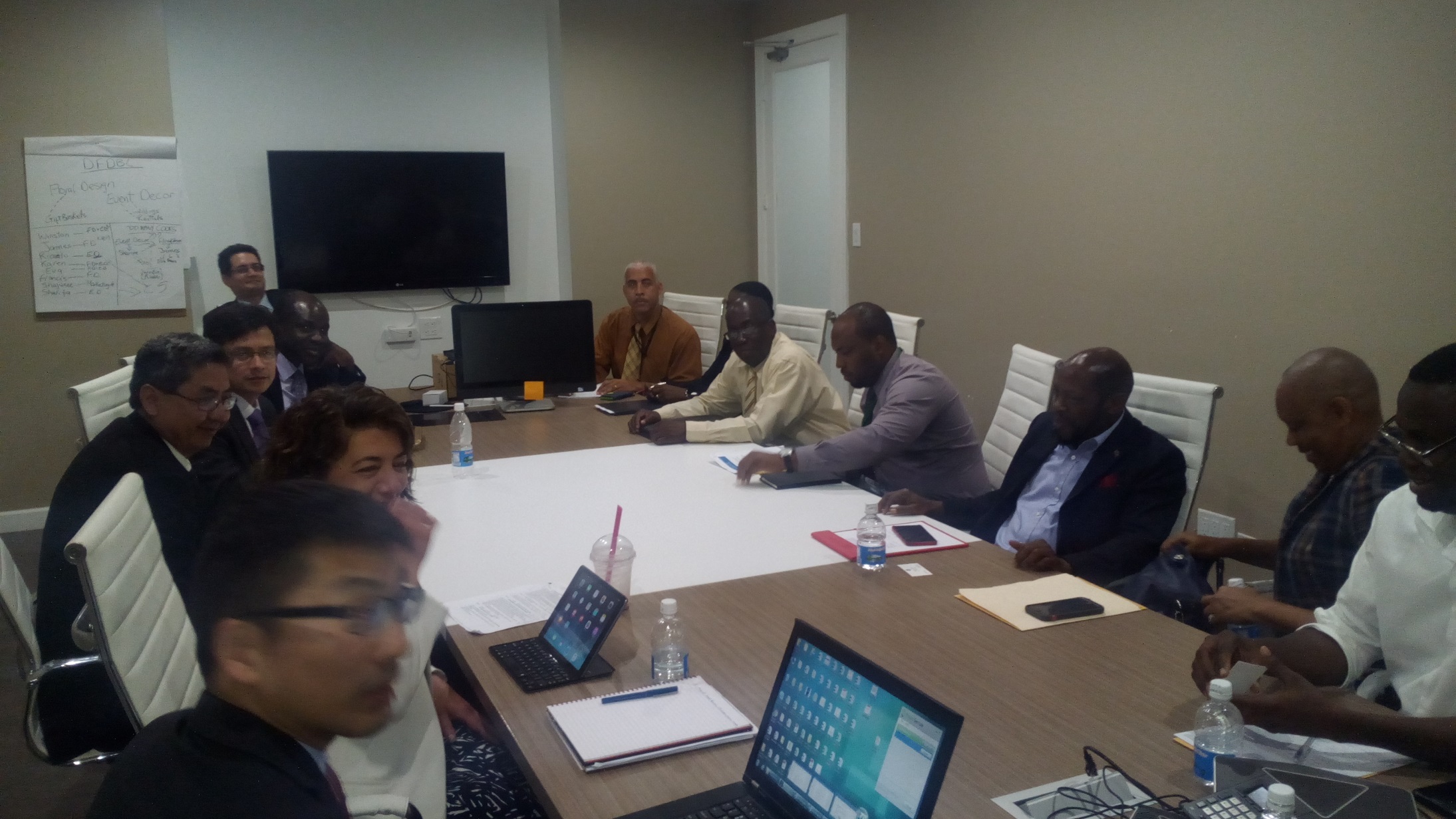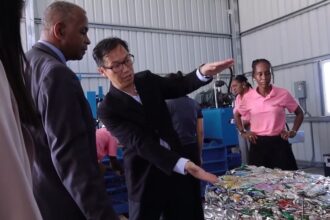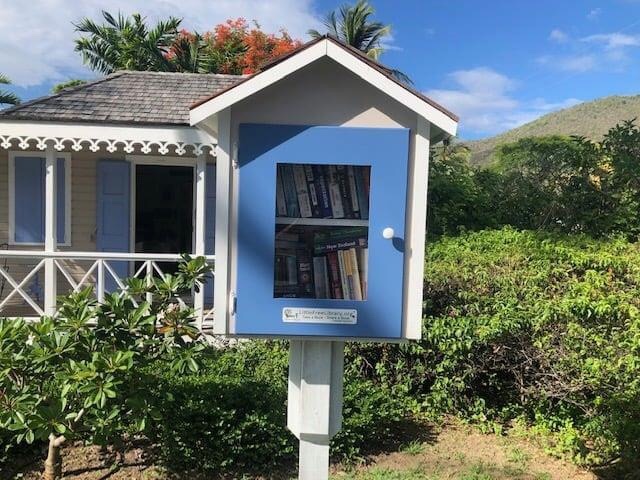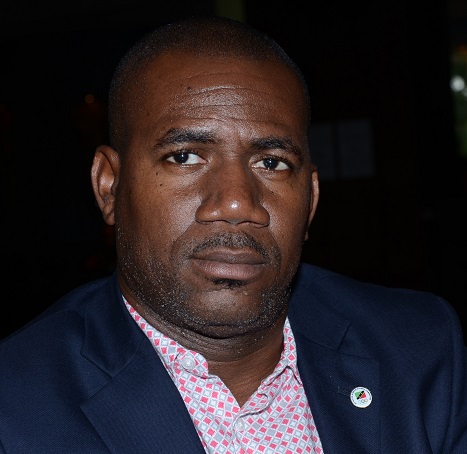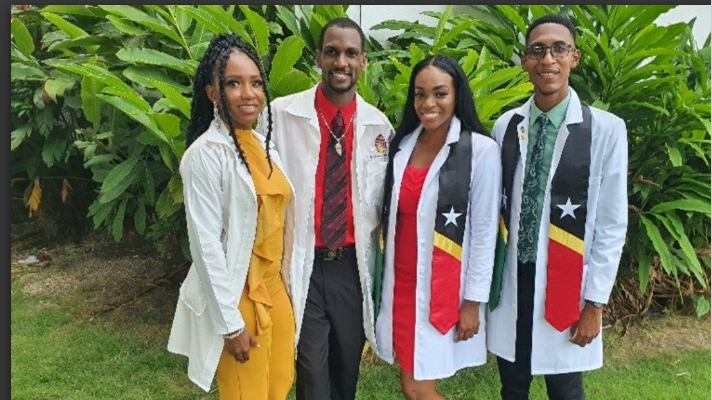Photo shows Leader of the Opposition, Rt. Hon. Dr. Denzil L. Douglas (center right) and his delegation meeting with the members of the IMF Mission to St. Kitts and Nevis
By: E. Williams
BASSETERRE, ST. KITTS, May 20th 2017 – Allegations of corruption in the Timothy Harris Administration and the absence of a Public Accounts Committee (PAC) in the St. Kitts and Nevis National Assembly were among the issues raised when Leader of the Opposition, the Rt. Hon. Dr. Denzil L. Douglas led a delegation in talks with the IMF Mission which visited St. Kitts and Nevis recently.
Dr. Douglas pointed to several instances of concerns in the public domain including the failure of the 27-momth-old Team Unity Government of Prime Minister Dr. the Hon. Timothy Harris.
The IMF Team visited from April 18th to May 4th.
On Friday, WINNFM in its headline evening report stated that corruption – the abuse of public office for private gain – is a many-headed monster pervasive in many countries, but only a fraction of cases make headlines; fewer are successfully prosecuted.”
It said that deputy chief of media relations in the International Monetary Fund’s Communications Department, Alistair Thomson, in a May 18 IMF blog, spoke of the impact of corruption in government on countries’ economies.
“By some estimates, bribery alone amounts to $1 trillion each year, and corruption more broadly to much more…Corruption drains public resources and drags down economic growth in multiple ways. When corruption is systemic, it undermines governments’ ability to mobilize investment…undermines financial institutions and systems, discourages foreign investment and distorts international capital flows. These threats to economic growth and financial stability are precisely why the IMF works with member countries to improve public institutions and legal frameworks.”
According to Deputy Chief Thomson corruption can reach into high levels of government, and the opportunities to commit and conceal corruption and its proceeds are continually evolving in an era of rapid technological innovation.
He said the IMF, however, fights corruption in several key ways, including having IMF fiscal and financial experts help countries improve public financial management, tax collection and transparency in public spending- allowing parliaments and citizens to hold governments accountable.
At a global level, to address concern over companies and trusts being used to hide the real owners of assets and accounts, the IMF has incorporated standards developed by the Financial Action Task Force into its regular anti money-laundering work, making it easier to identify and trace the proceeds of corruption.
The IMF has taken actions against errant member countries for exorbitant extra-budgetary purchases and the awarding of problematic contracts, by delaying disbursement of IMF funds in some cases and suspending lending in others.
Thomson said, “Corruption doesn’t stand still, and nor do we. The IMF is currently reviewing how we treat corruption and other governance issues, following a request last year from our global membership. We are exploring ways to work more closely with other organizations… Working together with our members and other partners, we are determined to press ahead: the burden of corruption on world growth, on countries’ economies and on their citizens, makes this a priority.”
Mr. Thompson was not a member of the IMF Mission which carried out the three-week Article IV Consultation.
The IMF Mission was led by Ms. Inci Otker and consisting of T. Komatsuzaki, G. Salinas, and M. Vargas.
Besides meeting with Dr. Douglas, the former prime minister and minister of finance, the IMF team also met with Prime Minister Harris; Nevis Premier, Vance Amory; the Deputy Governor of the ECCB, the Financial Secretary of St. Kitts and Nevis, the Permanent Secretary of Finance of the Nevis Island Administration, the Citizenship by Investment Unit, Ministries of Agriculture, Health, Labour, Social Development, and Sustainable Development, and other senior public officials, and representatives of the Financial Services Regulatory Commission, the St. Kitts-Nevis Trades and Labour Union and the financial and business community.

